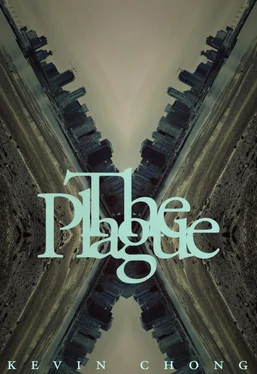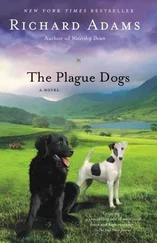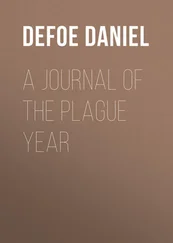At his mentor’s retirement party, the paper’s thirty-year veteran—the Chicago-born wife of a draft dodger—took him aside and asked him to start sending out his résumé. “I’m not worried about old goats like me,” she told him. “And I don’t know the newbies well enough to give a shit. But I’m worried about you. You’ve been here for all of the bad years and none of the good ones. The paper looks like it’ll die by the end of the work week, but it’s going to keep sputtering for a few more years. I’m worried that, by then, you’ll be too long in the tooth to be employable. Even worse than that, I’m concerned that it’ll make you a good family man, at the expense of your work. They say no one dies wishing they worked more. Absolute bullshit. Maybe if you’re selling hot dogs. Not so much when your job is looking at the world.” Siddhu remembered her talk verbatim. She had never said that much in their entire working relationship.
He took his place at her desk and started her old computer. In his inbox was a notice from the city’s communications director about a press conference. It related to the fight in council. He caught the train to City Hall and arrived early, taking his place in the front row next to Horne-Bough.
“It’s definitely about the fight,” Horne-Bough said in a stage whisper. He held his Polaroid camera with both hands. “The mayor’s ego has been clipped by the radical wing of his party. They’re going to lift the restrictions on the area around the Annex. ‘Freedom is given to everyone in this city, or no one.’”
“Maybe you should be holding the press conference,” Siddhu said through glassy laughter. He had a feeling that the mayor would repeat those same sentiments, in those words. “Who’s your source?”
“I’ll tell you, if you answer my own question. Where does one get the best craft Kölsch in the downtown area?”
“Are you counting Strathcona?” Siddhu asked. He’d occasionally post about breweries for the paper’s food and drink blog. Horne-Bough had been doing his research.
“Anywhere within a fifteen-minute cab ride.”
Siddhu offered a detailed and comprehensive ranking of breweries that any reasonable person would describe as overkill.
“As you know, I’ve been trying to get you to our offices for two weeks,” Horne-Bough said after Siddhu’s disquisition. “Maybe you’re afraid of me. I don’t take it personally. A more informal venue might help. What if I were to invite you for one of those Kölschs tonight?”
Romeo Parsons bounded in front of the podium. Siddhu noticed that he had a habit of mouthing certain phrases, the money lines of his prepared remarks, before he spoke. He wore a blue tie that matched the curtains behind him. Those curtains were a lighter tint of blue than the blue used by the previous mayor. The colour change had been a recommendation from a branding firm—at a cost of $12,000. “They really bring out his eyes,” the reporter from a local radio station snickered. It was the first time that Siddhu had heard an unkind remark uttered about the mayor.
Parsons began with an apology for the fight in City Hall. “These are tense times. There’s been unnecessary panic and finger-pointing,” he said. “We’ve seen nothing like this in our city since the Spanish Influenza at the end of the First World War.” Siddhu had heard that the city councillor who’d attacked him had left the caucus. (Later that day, she announced she was sitting as an independent.)
What made Parsons an electrifying speaker was a modest amount of eloquence refracted through joyfulness. Even now he smiled, but it wasn’t a hayseed smile; Parsons was a Rhodes Scholar, and he sat on the board of directors of the Art Institute of Chicago. The rest of his remarks fell in line with Horne-Bough’s prediction. Parsons added that he regretted the advice he’d been given from the Coastal Health Authority about the neighbourhood restrictions.
“What happened was that we needed to balance health safety with our concerns about our city’s most marginalized people. We failed in this regard. We have heard stories about harassment from our most desperate people. We have further demonized our most vulnerable people. Meanwhile, rates of infection haven’t decreased. The roadblocks have caused traffic congestion.” New measures would be announced soon to take the place of the old ones. “These new guidelines will be fairly applied to all. Until then, we all must proceed carefully. We don’t know the true extent of this health situation.”
The question period followed. Most queries were couched in praise for the mayor’s demeanor. There was still an aura about him, and the press still wanted him to succeed. Their own work as political reporters had been lifted by Parsons’ lofty profile. Voter turnout had risen by a quarter because of his presence. People talked about residential zoning and garbage collection with the same depth of feeling as they would about the all-time greatest hockey players. Relatives and friends of reporters inquired about their work with interest.
To his credit, only Horne-Bough asked a question that unnerved the mayor. “According to some accounts, twenty-nine people have died. When will we know this is a crisis?”
“I—I don’t think it’s, uh, twenty-nine,” Parsons stammered. “That’s not confirmed.” The rest of the mayor’s mumbled response could not be stitched into a coherent reply.
As the mayor finished the conference, he approached Horne-Bough and Siddhu, who had stood by the exit. “I hope you don’t mind some tough questions,” Horne-Bough said.
The mayor smirked. “I’m still standing.”
“Care to be in a Polaroid with a colleague?” he asked. “It’s for my private collection.”
“Anything involving Ray-Ray here is okay,” the Mayor insisted. He put one arm around Siddhu. The mayor smelled like he had been outside all day. It wasn’t a bad odour. He gave off the smell of someone who’d spent the afternoon hiking through a rainforest path. Parsons held the same camera-ready smile even as Horne-Bough tried his shot from various angles, finally holding the Polaroid over his head.
Later, at a nearby gastropub, Horne-Bough confessed that he was trying to see how long the mayor could hold his expression; the Polaroid shots caught only the tops of their heads. Each of them had the brewery’s tasting flights arranged in front of them on wooden trays. Horne-Bough seemed taken aback by the set-up—it looked like a science project. “I am more of a soju drinker,” he confessed. “I don’t even need fancy soju.”
Horne-Bough looked to be in his mid-twenties. He came from a wealthy Toronto family and had arrived in Vancouver only two years earlier. Although he was privileged, he claimed that his money was largely his own. Four years earlier, he’d placed most of a small inheritance into the hands of some boarding-school friends who’d launched an app that was later sold for what was rumoured to be a nine-figure sum. He had little experience in news besides a CBC internship he’d completed after high school.
With the exception of that internship, Horne-Bough’s work experience consisted of a string of odd, low-skill jobs: he played the “white guy” in a number of Korean TV shows after working on a documentary in Seoul. He cared for a falcon in Antwerp owned by an eccentric Belgian industrialist who dabbled in illegal arms dealing. He herded yaks in Tibet for two brothers married to the same woman—a local practice meant to keep land within a family. He so enjoyed recounting these workplace tales that Siddhu wondered whether that wasn’t the point in acquiring them. After all, he didn’t need the money. As he listed his jobs, he bounced between the mannerisms of a fey layabout and the more aggressive language of a bootstrapping start-up head.
Читать дальше












